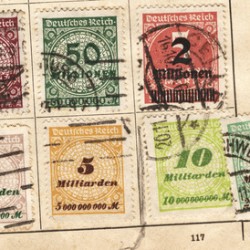A QUESTION OF SURVIVAL
A critique of “A Question of Trust”, David Anderson QC’s Report on Terrorism Legislation
Dr Michael Arnheim
Barrister at Law
Sometime Fellow of St John’s College, Cambridge
___________________________________________________________________________
David Anderson has titled his report on terrorism legislation “A Question of Trust”, on the assumption that the key issue is the public’s trust in government. In my opinion, a more appropriate title would be “A Question of Survival”, because I believe that the danger of terrorism greatly outweighs any danger arising out of the possibility of excessive government power, which is exaggerated by the “human rights lobby”. Although Anderson does his best to demonstrate that he takes the threat of terrorism seriously, his report effectively chips away at the gravity of this threat while magnifying the supposed threat to privacy posed by security legislation.
Gravity of security threat: Anderson effectively pooh-poohs the gravity of the security threat: “No one doubts the gravity of the security threats that are faced by the UK and its inhabitants….But it is generally a mistake (though a surprisingly common one) to describe threat levels as “unprecedented” [§3.4]. Anderson goes on: “Events capable of taking life on a massive scale are a feature of every age….” In a footnote he cites the Black Death, which killed a third of the population of Europe in the 14th century. The relevance of this fact is not immediately obvious, except insofar as it serves to minimise the current security threat.
Unwarranted: Anderson regards “trust” as the central issue: “If one thing is certain, it is that the road to a better system must be paved with trust” [Anderson’s emphasis – §13.3]. And: “Public consent to intrusive laws depends on people trusting the authorities, both to keep them safe and not to spy needlessly on them [§13.3(a)]”. At first sight, this looks unobjectionable, but it is unwarranted to assume that security laws are “intrusive” and that they “spy” on the public.
Metadata: For example, collecting metadata from telephone records, which is one of the most oft-repeated complaints about government “snooping”, does not give the government access to the content of those records. In other words, the metadata do not reveal what was actually said.
Hammurabi: While appealing to history to pooh-pooh the gravity of the security threat, Anderson attempts to use history to boost the importance of privacy, claiming that it can be traced back to Hammurabi’s Code and “the laws of Ancient Greece and Rome and of Ancient China” [§2.3]. As a Cambridge ancient historian, I have to say that this assertion of Anderson’s will simply not stand up to scrutiny. On the contrary, privacy law is a very recent phenomenon. Even Article 8 of the ECHR does not quite extend to a right of privacy as such and is expressly made subject to “the interests of national security, public safety or the economic well-being of the country, for the prevention of disorder or crime, the protection of health and morals, or for the protection of the rights and freedoms of others”.
Defeatist: In reply to those who object to Anderson’s less than robust approach to terrorism, he replies: “It is how things are: criminals and enforcers are locked in a digital arms race, where neither can be sure of having the upper hand [§13.23(a)]”. And, as if that is not defeatist enough, Anderson adds: “It is how things should be” [§13.23(b)].
“Undemocratic, unnecessary and – in the long run – intolerable”: Anderson’s conclusion on the Regulation of Investigatory Powers Act 2000 (“RIPA”) is that it is “undemocratic, unnecessary and – in the long run – intolerable” [Executive Summary, §35]. Anderson’s recommendation of a single new comprehensive law covering the privacy of communications and the circumstances in which they can be “interfered” with by public authorities makes good sense, as does Anderson’s concession that “the operation of covert powers is and should remain secret” [Recommendation 121]. However, his recommendations, based on five “principles”, which in turn are founded on “trust” as “the key issue”, place too much emphasis on privacy rights and also do not sufficiently recognise that the balance is not between “human rights” and “security” (with the former outweighing the latter) but between human rights and human rights, with “security” being essentially in the interests of the human rights of the majority. In fact, UK public opinion actually prioritises security over privacy: A February 2014 TNS BMRB poll showed that “A large majority (71%) think the government should prioritise reducing the threat posed by terrorists and serious criminals even if this erodes people’s right to privacy’” [www.tns-bmrb.co.uk].
My Take: My take on the whole issue of security and privacy is in line with this clear expression of public opinion rather than with Anderson’s somewhat timid and defeatist position. It is, I believe, important to recognise – as indeed even the most extreme libertarians do – that the prime function of government is to keep the country safe. As Lord Salisbury the 19th century Prime Minister remarked: ”I rank myself no higher in the scheme of things than a policeman – whose utility would disappear if there were no criminals.” But what this means is that the government – the executive – must be given the power to perform this function without undue interference by the judiciary or any other bodies or institutions. And the fact that this robust position is supported by a high proportion of public opinion shows that, far from being “undemocratic”, as Anderson characterises it, it is actually an important safeguard of democracy. It is precisely those democratic regimes that have shown weakness in the face of serious threats that have been swept away by them. Two examples particularly spring to mind: the Weimar Republic in Germany and what I call the “Kerensky syndrome” of the liberal democratic regime between the February and October Revolutions in Russia in 1917.
© Dr Michael Arnheim 2015




